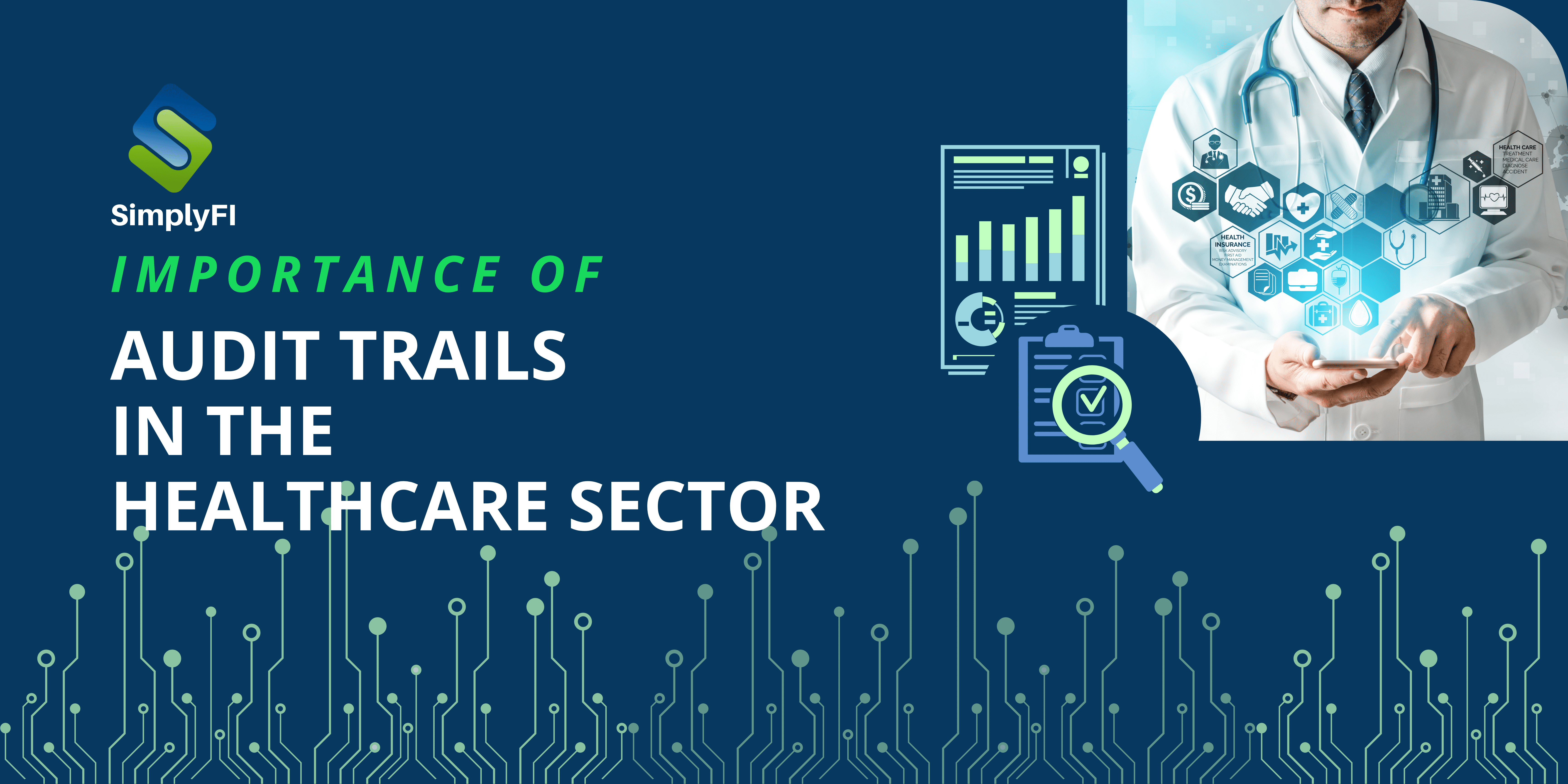Shloka Hatte Jul 20, 2022 0
Importance of Audit Trail in HealthCare Sector
The pandemic has increased the demand for the digital tools that can rapidly collect and analyze infection data, track human movement, and manage and analyze patient records.

What is audit trail?
An audit trail is a record of all the steps taken during a process, usually in chronological order. In healthcare, audit trails are important for quality control and to help prevent errors. Automation can help improve the accuracy of the audit trails by ensuring that all the steps are recorded properly and in the correct order.
How Covid-19 and AI can help make audit trails easy?
Over the past decade, a number of new digital technologies have emerged, such as 5G telecommunication networks, the Internet of Things(IoT), and artificial intelligence(AI) that uses deep learning and big data analytics. These technologies could have important potential applications and effects in healthcare. The COVID-19 pandemic, which caused paralysis in access to global health systems through unprecendented lockdowns and enforced physical distancing, has rapidly accelerated development of these digital technologies to meet various healthcare needs around the world.
How can Blockchain and Healthcare Automation go hand-in-hand?
Blockchain is a fundamental digital technology that integrates many other similar technologies. In healthcare, blockchain could act as a substitute for traditional distributed database management systems, which have generally been client-based databases, and servers with query language or relational input. Although traditional distributed database management systems are an established platform in healthcare systems, they have substantial limitations, such as the inability to support peer-to-peer data sharing, susceptibility to external adversaries (e.g.), and the absence of an immutable (i.e. immutable) audit trail. With its unique characteristics, such as transparency, traceability, non-repudiation (i.e. impossibility of refuting the validity of the signature), disintermediation ( i.e. removal of intermediaries from a decision-making process) and immutability, blockchain could potentially address these problems, allowing it to offer important advantages over conventional platforms (eg. distributed database management systems). By incorporating blockchain technology, it is possible to create a decentralized health data management system that coordinates on-chain events (transactions recorded on the blockchain ledger) and off-chain events (those that occur outside the blockchain and are generally too large.
-
Be compliant with the law or standards
-
Give you a big picture of your work
-
Troubleshoot problems
-
Reduce development of your work
How can an audit trail benefit your industry or business?
Benefits of having an effective audit system
The benefits of having a good audit system go beyond just troubleshooting. A good audit trail system allows you to see the big picture of your business condition. The best audit trail systems also contain visualizations that allow you to review the state of your business at a glance.You get a complete view of the life cycle of a typical business process in your company. The life cycle of a typical business process can be highly involved. For example, a supply chain business process can move from an in-house customer order management system to a third-party logistics provider's warehouse management system, before ending up in the carrier's freight system. How do you track different hops across multiple data centres? A good audit trail system will enable you to create these business events in the system as the details of these events will be captured and linked together as a whole so that you have a complete overview of your business and how it is working.
So, a good auditing platform will enable your business to:
Unfortunately, organizations often end up spending a lot of time building audit trails that are inconsistent in quality. And at the end of the day, the consumers of the data are not satisfied because they can’t even do basic tasks like search the data for what they need, or go back in time to troubleshoot what went wrong in recent transactions.
Types of Audit Trails
Audit trails, or rather the process of continuing an audit trail, exist in many different areas of finance. When buying a home, for example, a mortgage lender might use an audit trail to determine the source of the money for the down payment. They may request to see a bank statement showing that funds have been deposited into the account and request additional verification as to the source of the deposit.
The Securities and Exchange Commission (SEC) and the New York Stock Exchange will use audit trails to explicitly rebuild deals when there are questions about the correctness or accuracy of trading data. This is done to ensure that the trades made on the major exchanges comply with the current regulations.
Of course, audit trails can also be used to track inappropriate market activity. If, for example, it is believed that a particular entity is trading in large amounts of minimally traded stock for the purpose of manipulating the stock price, the regulator can use an audit trail to help identify the culprit.
The regulator will then document and analyse all the houses and brokers involved in specific deals of the breaching security to determine its abnormal activity and who the manipulator might be. Depending on the complexity of the trading scheme used, the reconstruction of trade history may require forensic accounting as well as audit trail data.
How can SimplyFI help make your Audit trials easy and automated?
Audit trails are essential in the health care industry to ensure the secure and transparent handling of patient data. With the rise of automation and blockchain technology, audit trails are becoming even more important in order to protect the supply chain from fraud and corruption.
How Blockchain can transform Banking in 2020?
Investing in powerful technology is a short-term cost to gain long-term efficiency in the banking and financial sector. This certainly applies to the powerful technology, Blockchain, which has the potential to enhance several processes within the financial and banking sector. From making cross-border payments faster to removing the costly middleman it’s already impacting the international as well as domestic banking network. Implementing distributed ledger technology in the banking sector is a great step towards making banks more profitable and valuable.
Written By:



